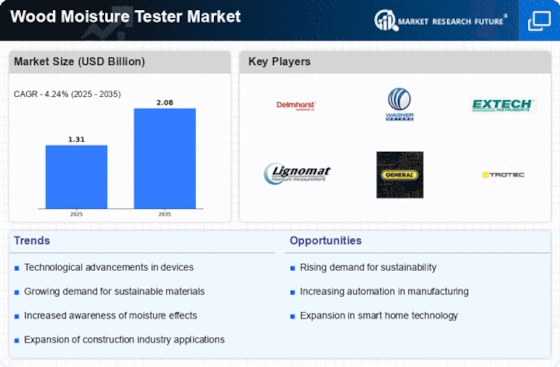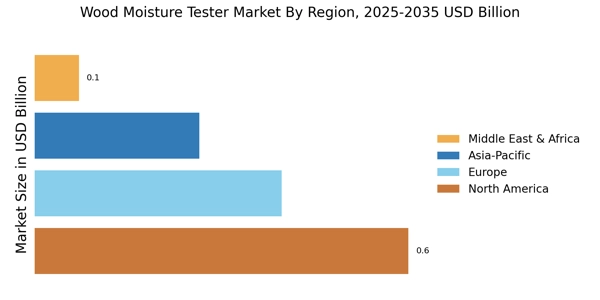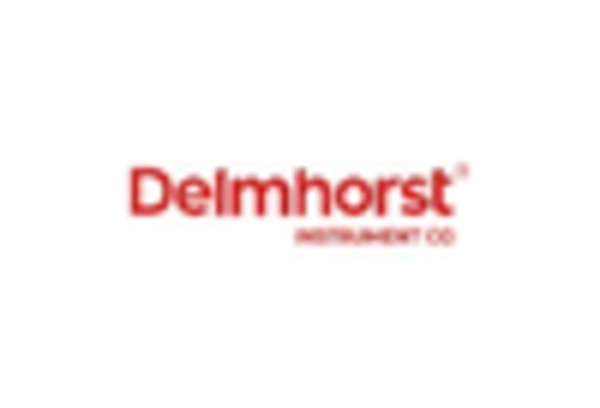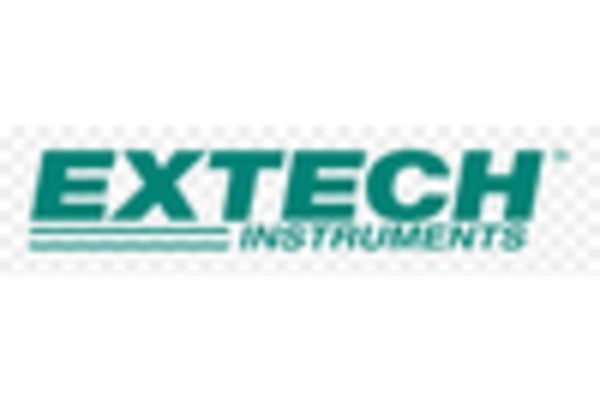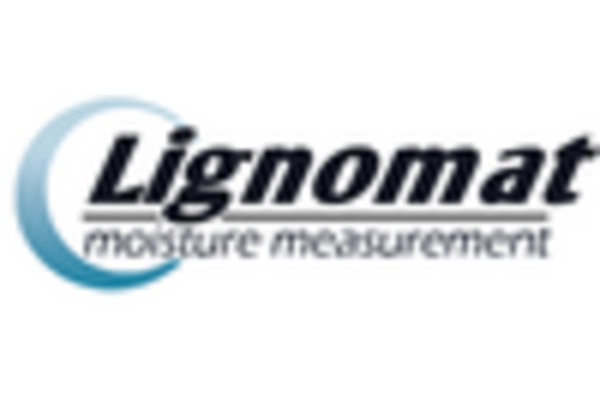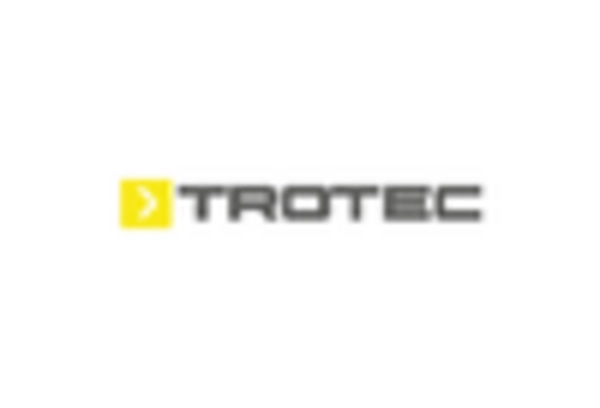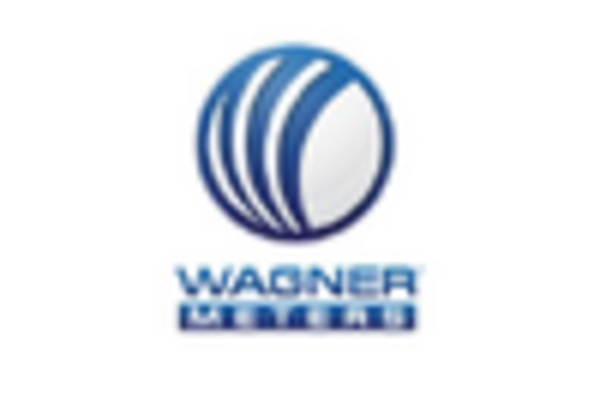Rising Demand for Quality Control
The Wood Moisture Tester Market is experiencing a rising demand for quality control measures across various sectors. As industries become more competitive, the need for high-quality products has intensified, leading to a greater focus on moisture management. Accurate moisture testing is crucial for ensuring that wood products meet quality specifications and customer expectations. In sectors such as furniture manufacturing and construction, the quality of wood directly impacts product performance and customer satisfaction. Market analysis suggests that companies are increasingly investing in moisture testing solutions to enhance their quality control processes. This trend is likely to propel the Wood Moisture Tester Market forward, as businesses seek to implement rigorous testing protocols to maintain product integrity and reduce the risk of defects.
Regulatory Standards and Compliance
The Wood Moisture Tester Market is increasingly shaped by regulatory standards and compliance requirements. Various industries are subject to stringent regulations regarding moisture content in wood products, particularly in construction and manufacturing. These regulations aim to ensure safety, quality, and environmental sustainability. As a result, companies are compelled to invest in reliable moisture testing equipment to meet these standards. The growing emphasis on compliance is likely to drive demand for advanced wood moisture testers that provide accurate and consistent measurements. Furthermore, as regulatory bodies continue to evolve their standards, the Wood Moisture Tester Market may see a shift towards more sophisticated testing solutions that can adapt to changing requirements. This trend underscores the importance of moisture testing in maintaining industry standards.
Increased Adoption in Diverse Industries
The Wood Moisture Tester Market is witnessing increased adoption across various sectors, including construction, woodworking, and agriculture. This trend is driven by the growing recognition of the importance of moisture control in ensuring product quality and longevity. For instance, in the construction industry, accurate moisture measurement is critical to prevent structural issues and ensure the durability of wooden structures. Similarly, in agriculture, moisture testers are essential for assessing the quality of timber and ensuring optimal storage conditions. Market data indicates that the construction sector alone accounts for a substantial share of the wood moisture tester market, highlighting the diverse applications of these devices. As more industries recognize the value of moisture testing, the Wood Moisture Tester Market is expected to expand significantly.
Sustainability and Environmental Concerns
The Wood Moisture Tester Market is increasingly influenced by sustainability and environmental concerns. As industries strive to reduce waste and improve resource management, accurate moisture measurement becomes essential. Proper moisture control in wood products not only enhances quality but also minimizes the risk of defects and waste during production. This focus on sustainability is particularly relevant in sectors such as furniture manufacturing and construction, where the quality of wood directly impacts the environmental footprint. According to recent data, the demand for sustainable building materials is on the rise, which in turn boosts the need for effective moisture testing solutions. Consequently, the Wood Moisture Tester Market is likely to benefit from this trend, as companies seek to adopt practices that align with environmental standards.
Technological Advancements in Wood Moisture Testers
The Wood Moisture Tester Market is experiencing a surge in technological advancements, which enhances the accuracy and efficiency of moisture measurement. Innovations such as digital displays, Bluetooth connectivity, and advanced sensor technology are becoming increasingly prevalent. These advancements allow for real-time data analysis and remote monitoring, which are particularly beneficial for industries such as construction and woodworking. The integration of smart technology into moisture testers is expected to drive market growth, as users seek more reliable and user-friendly devices. Furthermore, the introduction of multi-functional testers that can measure various parameters beyond moisture content is likely to attract a broader customer base, thereby expanding the market. As a result, the Wood Moisture Tester Market is poised for significant growth, driven by the demand for high-tech solutions.


